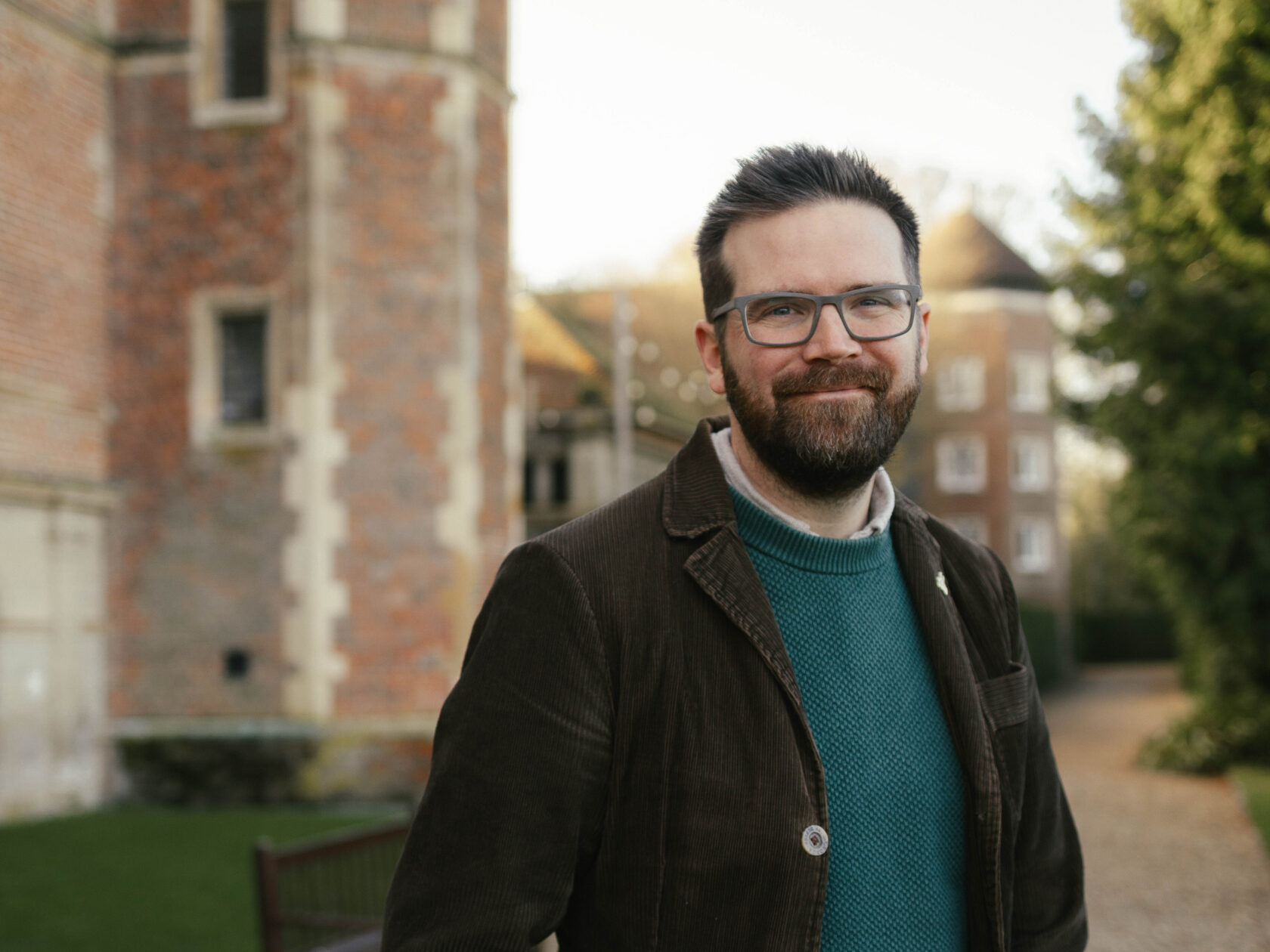If I could redesign the education system, philosophy would be a mandatory subject in every high school and university. Not because I believe everyone should become a philosopher, but because anyone hoping to live an examined, creative, and intelligent life should encounter philosophy — early and often. It’s the foundation beneath everything else: science, finance, law, art, even AI.
Returning to philosophy after more than a decade away has been nothing short of blissful. I first studied it as a minor during my first master’s degree, over ten years ago. Now, in the midst of my current master’s program at Cambridge, I find myself once again immersed in its questions — this time under the guidance of Dr. Alexander Carter.
Dr. Carter is an Associate Professor of Philosophy and Interdisciplinary Studies at the University of Cambridge, Institute of Continuing Education, and a Fellow and College Lecturer at Fitzwilliam College, Cambridge. He is also a Senior Fellow of the Higher Education Academy. He teaches across a wide range of topics — from formal logic and ethics, to political philosophy, education reform, and the philosophy of artificial intelligence. He is also known for his work with adult learners and his deep commitment to inclusive, accessible education. But beyond all of that, he is someone who thinks in a way that is refreshingly rigorous, unexpectedly self-aware, and unmistakably human.
Our conversations in class haven’t just reminded me of why I was once drawn to philosophy — they’ve brought me back to that restless, thrilling terrain where philosophy first took hold of me. Not because it offers tidy answers (it rarely does), but because it opens the space to dwell inside the questions that won’t leave you alone. The ones that keep you up at night.
In a world engineered for speed, certainty, and surface-level thinking, philosophy still dares to ask: What are we doing? Why does it matter? That’s what this conversation is about.
So I set out to speak with someone who not only teaches philosophy, but lives it. Our discussion ranged from the limitations of AI to what Wittgenstein and Nietzsche still have to teach us, to how philosophy can help us recognize when our work — or our world — has started to feel like a plastic lobster: shiny, absurd, and strangely hollow.
Good conversation, like good philosophy, deserves time. So pour a coffee, settle in, and join us in thinking out loud.
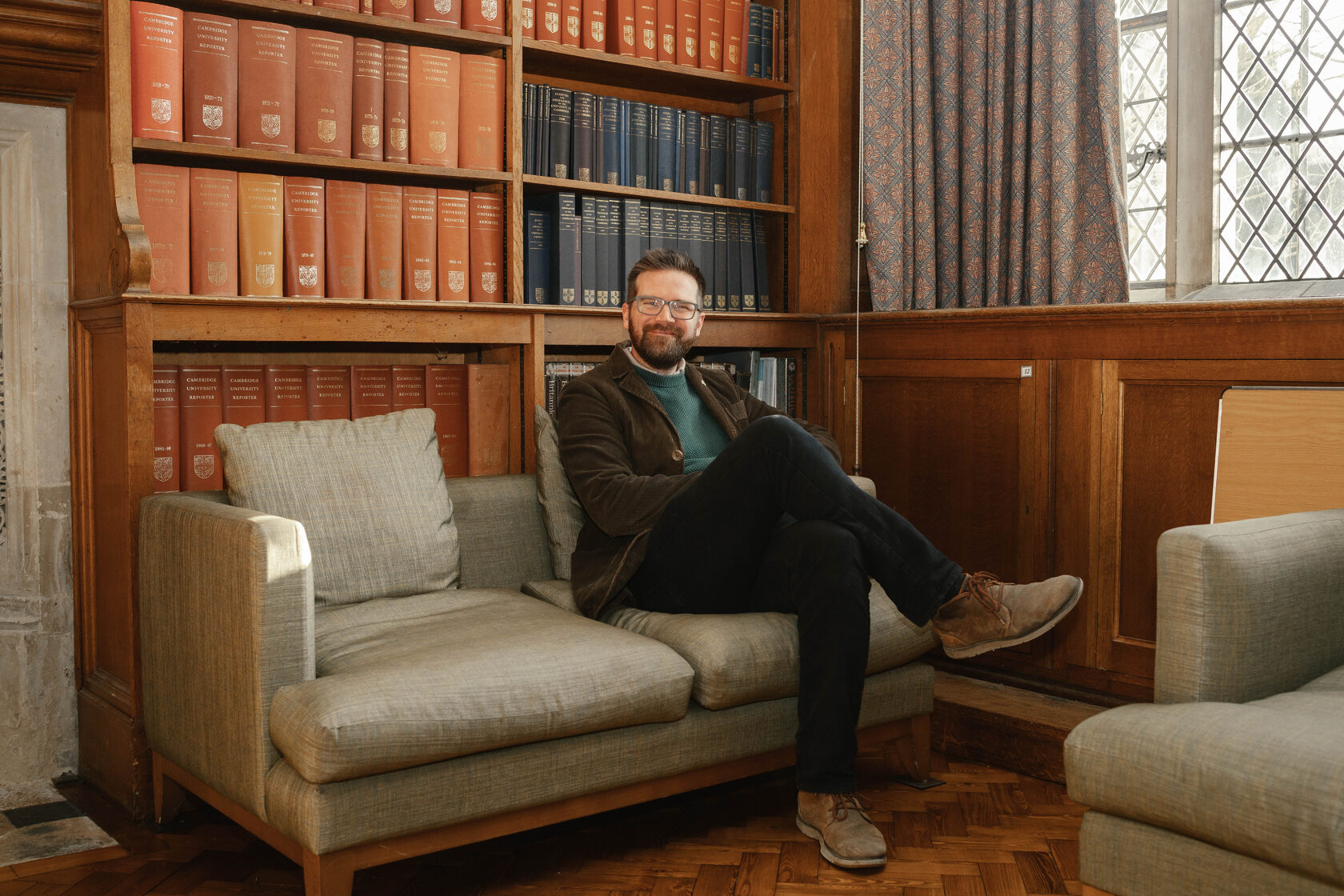
Dr. Carter, could you share a bit about what initially drew you to philosophy? Was there a moment or a particular text that made you take the leap?
I think the answer I usually give is a bit disappointing at first. What drew me in was probably a sense of apathy. I identify as Generation X — technically, I'm on the cusp of millennial, but culturally, I'm very much Gen X. I grew up watching The Simpsons, with that constant undertone of "Eh, why bother?"
When the time came to get serious about careers, I realized I didn’t want to become a doctor or an accountant or even an academic — that felt too remote. But questions like, Does God exist? Is there free will? What is truth? — those were questions I could wrestle with. I had views, arguments, a natural tendency to debate, not necessarily to be contrarian, but to get to the heart of things.
What really shifted things for me was reading Wittgenstein. I had been what Cormac McCarthy would call a "village atheist" — someone who endlessly reviles what they don’t believe in. And then Wittgenstein comes along and says, essentially, that both theists and atheists can be wrong. That idea, that you can chart a third path rather than being forced into side A or side B, fascinated me.
How old were you when that shift happened?
I actually took A-level philosophy and didn’t enjoy it at all. The teaching was very surface level. But I had an incredible religious studies teacher, Mr. Selman, who got me interested in religious philosophies, especially Hinduism. That became an important part of my trajectory.
Later, I went to university to study Ancient History and Philosophy — a kind of classics mix with a bit of archaeology and languages. Philosophy was technically my minor, but it very quickly took over. Once I encountered what I call "real philosophy," especially within a Wittgensteinian framework, it completely hooked me.
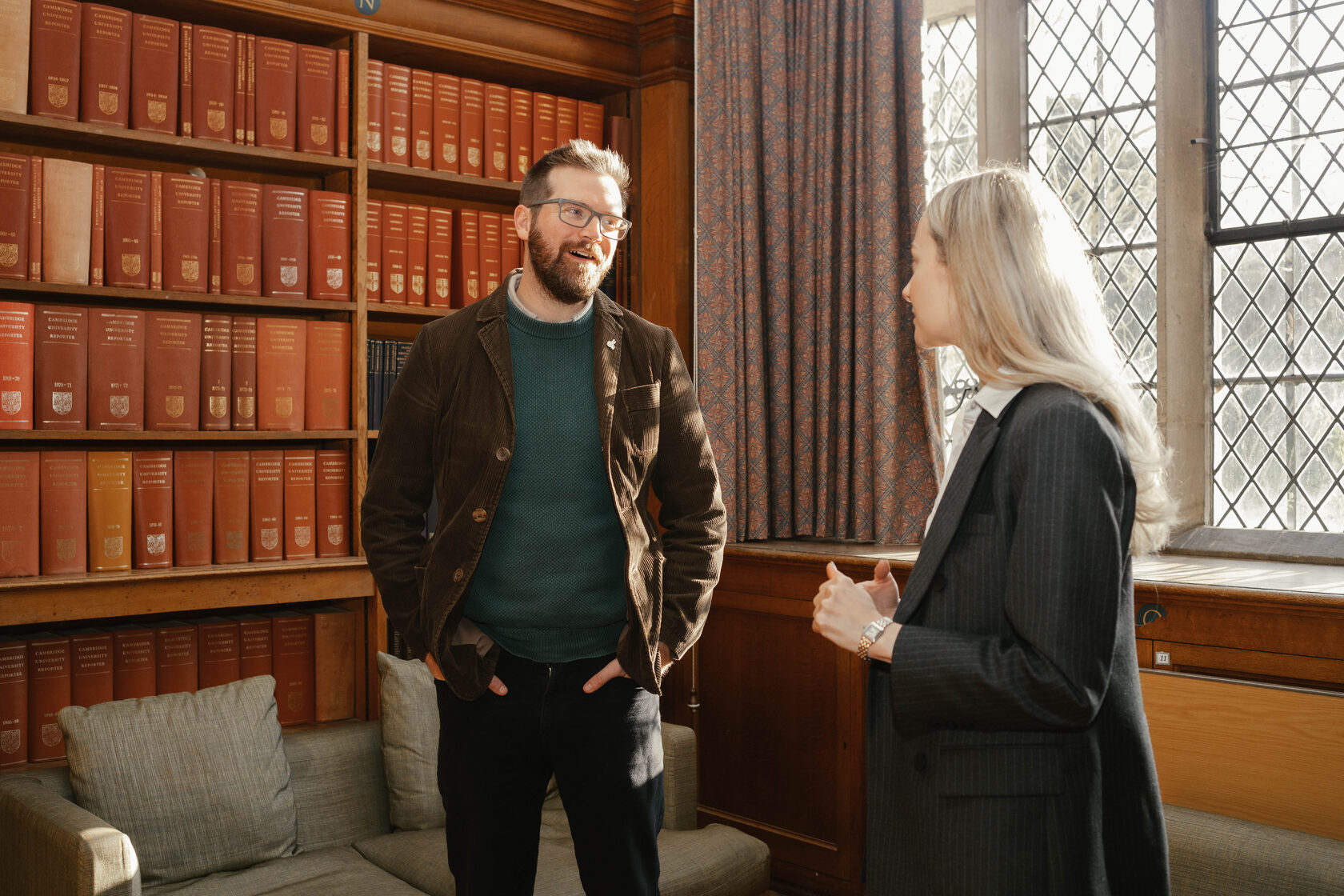
Once you got to the University of Cambridge, surrounded by so many great thinkers and names, did being in that environment shift your perspective on philosophy or academia?
Hugely. I came from a North London comprehensive school where no one went to Oxford or Cambridge. I ended up at Swansea, which had an excellent philosophy department at the time. But the idea of going into elite institutions, or even thinking of myself as a change-maker, wasn’t part of my world.
Cambridge changed that. Not necessarily the content of the philosophy, but the ethos. The idea that I could sit at a table with people shaping the world and have something to contribute. That realization had a profound impact. Philosophy, I began to understand, wasn’t just abstract musing — it could shape policy, guide decisions, impact lives.
So arriving here, it was less about the philosophy itself and more about the ethos — this sense that, “Oh, you can make change. You can have an impact.” Suddenly I found myself talking to people shaping policy and systems and realizing: I can talk to them. I have something to say.
That’s when the shift happened. From pure interest to asking, “Why am I doing this?” The motto of Essex University, where I did my PhD, is “Don’t watch the world go by. Change it.” That started to seep into my thinking. I realized philosophy could be more than personal curiosity — it could be useful.
Now I design my own courses. I work with adult learners. I’m involved in inclusive education. And I always go back to that Essex moment where someone asked me not just what I was doing, but who I was doing it for.
You’ve mentioned that you design courses with inclusivity and interdisciplinarity in mind. How do you see philosophy fitting into a more interconnected educational future?
Interdisciplinarity is vital, but we risk turning it into just another discipline. What we need is a shift in thinking. Philosophy should function like connective tissue — helping people ask better questions about what they do.
For example, when I teach research theory, I ask historians whether they're reconstructing the past or constructing a narrative for the present. That changes how they approach their work. The goal isn’t to turn everyone into a philosopher, but to help them philosophize when it matters.
In an era of constant distraction, what role can philosophy still play?
David Hume wrote about “easy” vs “abstruse” philosophy — easy being someone like Voltaire, accessible to the well-read public of his day. Today, we’ve compressed even that. People don’t read Voltaire; they read a sentence from him. We want aphorisms. Refrigerator magnet wisdom.
And I’m guilty too. I love aphorisms. One of my favorites: Nietzsche’s line, “Maturity means regaining the seriousness one had as a child at play.” There’s so much in it: maturity, play, creativity, loss and return.
But the problem isn’t just brevity — it’s attention span. TikTok is aptly named. The clock is ticking. We move in 20-second chunks. That’s a disaster for sustained thought. And we’re treating AI as the solution, which is not a solution — it’s an exacerbation.
Devices blur work and life. Phones are simultaneously productivity tools and dopamine dispensers. That’s dangerous. I think one solution — and again, I realize how naive this sounds — is to reclaim conversation. Not to ban tech, but to ask questions about why we use it. Even that is philosophy.
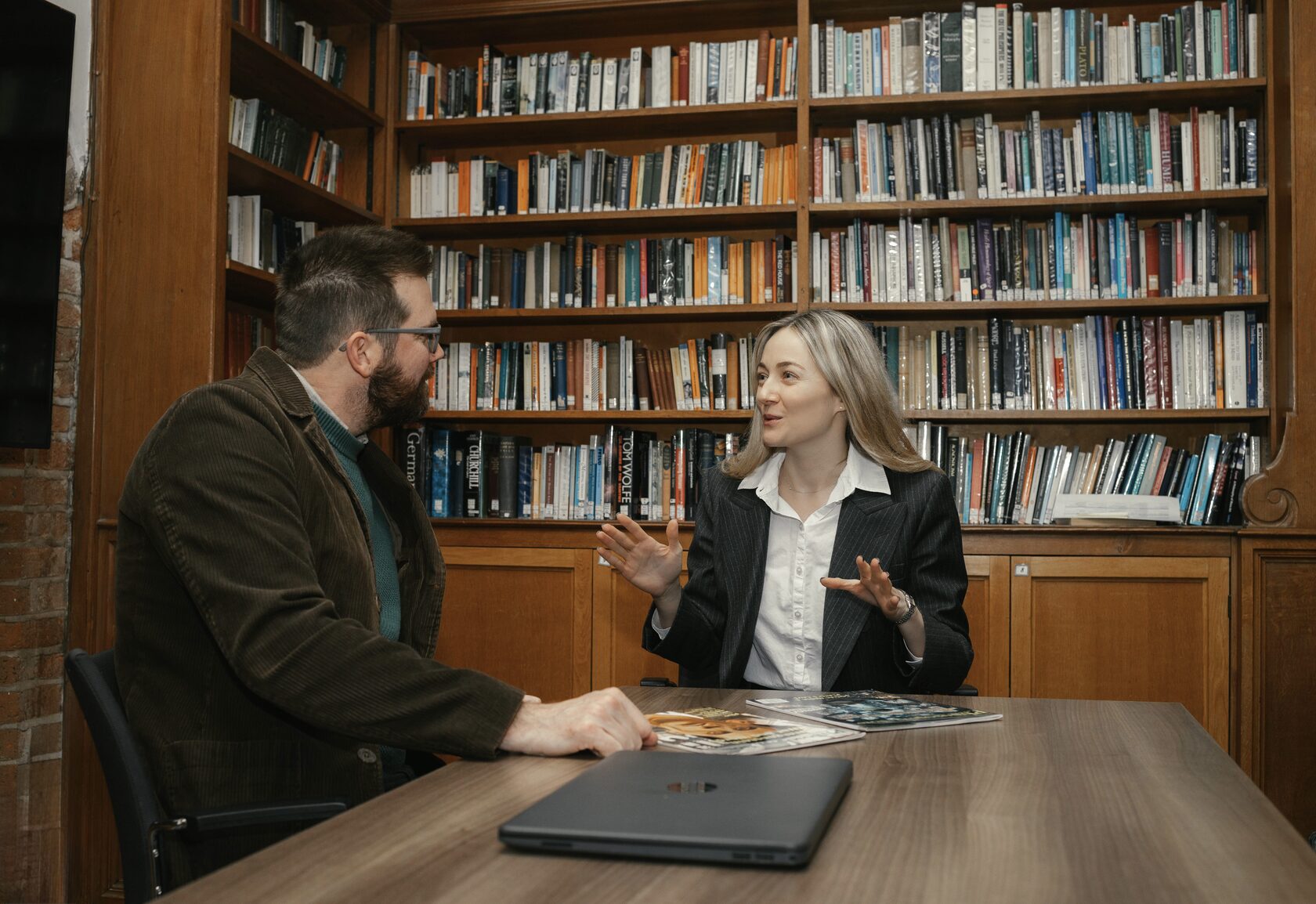
You're researching the (im)possibility of creative AI. What’s your position? Has AI changed how we think, and do you think philosophy has a role to play in that shift?
Absolutely. AI is misunderstood if we imagine it can or should think for us — AI is thinking (the noun), but it can never think (the verb). We’re outsourcing the process, but the intentions, the motivations, still come from us. And if we lose our connection to those, we lose what it means to think at all.
There’s a great danger in automating learning. If a student says they want AI to write for them, summarize for them, think for them, then they’re not learning anymore. That’s why I ask my students: Which part of your learning do you want to automate? If the answer goes beyond referencing, they’re missing the point.
Do you see your mission today as showing philosophy’s purpose? Has that evolved?
I still reactively focus on being a good teacher, answering emails, and marking essays. But the purpose is clearer. I think back to a woman who burst into tears at an open day event when I told her, “We were literally set up for you.” She never got to go to university at 18 because she had a child.
That moment showed me that change doesn’t have to be grand. Philosophy impacts individual lives. That’s meaningful.
And yet, part of me still fears becoming the person who sells plastic lobsters. That is, Schopenhauer once remarked that we think of our lives as tragedies, but really they are absurdities. Imagine your business, mortgage, and maybe even your marriage depend on you selling more novelty plastic lobsters than last year. Such an absurdity lies at the heart of any meaningful existence. What is absurd in my life?
I try to help students ask, “Why am I doing this?” That’s the start of everything.
Should philosophy be taught in schools and universities to everyone?
Yes — but we need to define what we mean by philosophy. I often cite Žižek: philosophy is the art of asking the right questions. That alone is worth teaching.
But we don’t need more philosophers. We need more philosophically-informed people — especially teachers. A science teacher should ask: what is science? What is the truth? What is evidence? A historian should ask: am I reconstructing the past or constructing a narrative for the present?
Philosophy is the arch-interdisciplinary discipline. It belongs in other subjects.
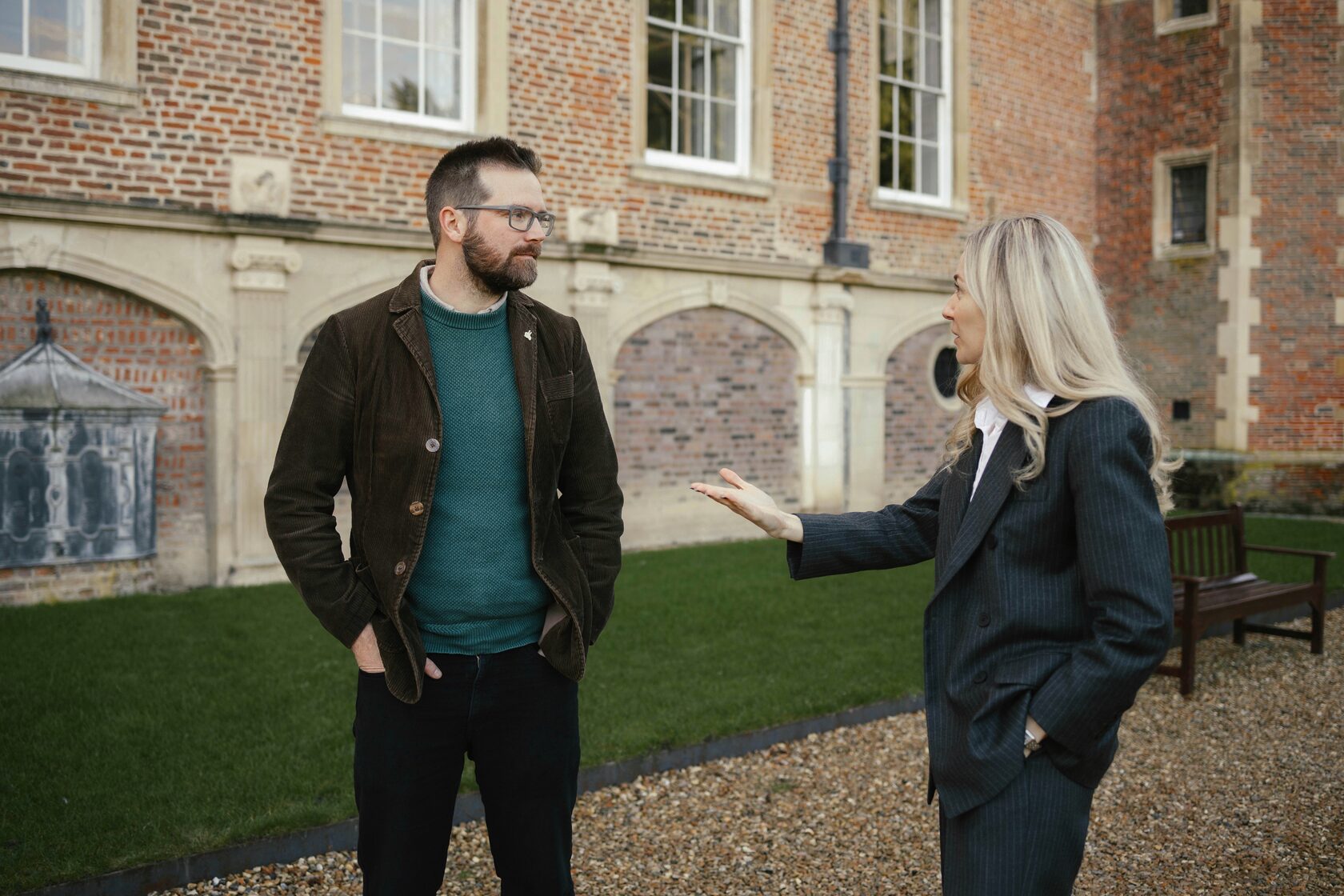
Do you believe philosophy is foundational for any intelligent person?
Depends how you define intelligence. I’ve seen people live philosophy better than I can explain it. My colleague once used stones and sticks to create learning games for kids. He never studied theory. But he was brilliant at it.
So no — not everyone needs philosophy to be effective. But when philosophical thinking does appear, it always has the potential to improve what you're doing. It doesn’t always, but it can.
Can you teach someone how to think? Or is it more about unlearning how not to think?
Yes — if by thinking, you mean learning to question your thinking. Bill Lucas’s work on “habits of mind” in creativity showed me this. You can teach habits like inquisitiveness, perseverance, daring to be different.
But here's the catch: if it’s not in someone’s character to change, how do they change? In the TV show House — he’s always asserting that people don’t change. But part of what he meant is that, if change is in your character, then you didn’t really change — you just revealed what was already there. TL;DR: we all need to identify and encourage our capacity for change.
Maybe the better answer is: there’s always a capacity for change. But it has to come from inside the system.
Another reason to study philosophy: it helps us understand “bad” emotions like frustration. Do you agree?
100%. We pathologize negative emotion — but frustration can be the root of productivity. Horror can be meaningful. Tragedy can be beautiful. Guernica is a great painting, but it’s not good in the ethical sense.
Philosophy shows us that some of our most important feelings don’t fit into neat binaries. And that’s what we need in an age of clickbait and algorithms.

What books or authors would you recommend to someone new to philosophy?
Start with aphorists. Nietzsche. Wittgenstein. Simone Weil — especially Weil. She may be the most profound theologian I’ve read. She convinced Camus. Eliot called her a genius and a saint.
More recent? "The Philosopher Queens" — a fantastic book highlighting women philosophers; although they didn’t mention Weil. I also have a soft spot for a book by Ilham Dilman called, "Free Will: A Historical and Philosophical Introduction.
If you could put one quote on every classroom wall, what would it be?
“Don’t think. Look.” (Wittgenstein).
What stayed with me after this conversation wasn’t a grand conclusion, but a shift in posture — a reminder that philosophy doesn’t end when the seminar does. It shows up in how we notice things, how we speak, how we resist the pressure to move too quickly past what matters. Not in declarations, but in small, everyday refusals: to accept easy answers, to confuse noise for knowledge, to mistake repetition for understanding.
Dr. Carter doesn’t just teach philosophy — he models it as a way of moving through the world: curious, deliberate, and unafraid of discomfort. And in an age of acceleration and artificial intelligence, maybe the most radical act is still to think, slowly.
Dr. Carter doesn’t just teach philosophy — he models it as a way of moving through the world: curious, deliberate, and unafraid of discomfort. And in an age of acceleration and artificial intelligence, maybe the most radical act is still to think, slowly.
To learn more about Professor Carter’s research and the list of courses he teaches, please visit his official website, his Fitzwilliam College profile, profile at the University of Cambridge’s Department of Continuing Education, and the Fitzwilliam College Summer Programs, where he will be leading the Philosophy of Science course from 13th to 26th July 2025.



